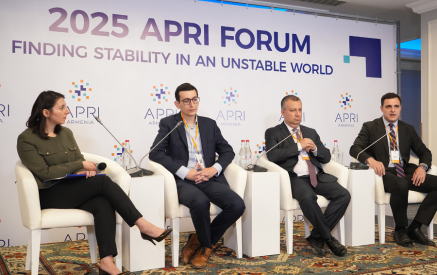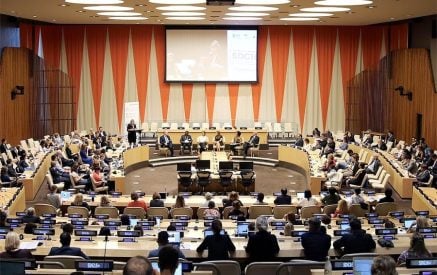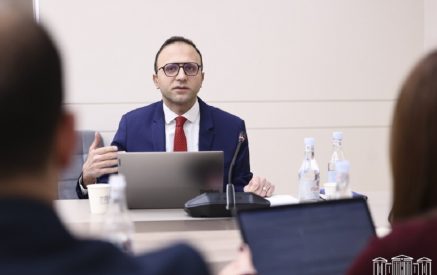I do not know whether in the next 3-4 years the Constitution of Armenia will be amended, and whether there is an urgent need for it. The attitude of our political elite is ambivalent on this question. The political forces that were carrying out rallies to amend the Constitution, to pass to a parliamentary system of government, to conduct a 100-percent proportional election, and etc., now they are saying that there is no need for doing any amendments. Give us the power and that’s it. While the people, whose lives and activities from top to toe is a violation of the Constitution, are now saying that the Major law should ensure people’s rights and freedoms.
But should it remain to me, I would have amended the Article of the Constitution, which cannot be changed by the law, firstly, “The Republic of Armenia is a sovereign, democratic, social and legal state.” The problem is not with the fact that since the adoption of the Constitution, in the course of almost 19 years, our state has not obtained any of these 4 features listed. We can ever become, and I am sure that we will become a sovereign, democratic, and legal state. But, as to the social state, we even in theory would never become. Because, in my opinion, it is a meaningless and void phrase.
This idea of the 19th century German philosopher Lorenz von Stein found a rapid development in the last century, with European social democrats. The basic principles is that the state eliminates the social inequality through redistribution of resources. In Nordic countries, this model was successfully applied until 70’s, after which, however, the West appeared in a difficult situation. Because the logical continuation of this model is the parasitism and sponging, when non-working is becoming more profitable than working. Indeed, the state should implement serious programs to support socially vulnerable groups, to reduce the unemployment and to encourage charities. Anyway, it must be based on practical, proactive, working, and creating person rather than a sponge waiting for assistance and chronically complaining. It is true both to Armenian, Swedish and South African mentality.
The usage of the word “social” in public, political, and economic practice as a positive characteristic (“good”, “sweet”, “fair”) sometimes is highly questionable. The term “socially responsible business”, for example, is quite understandably, the entrepreneur, on his own, is responsible not only for his employees but also the community in which he lives. When under the “social justice” people understand equality of all citizens before the law, it is also understandable, only it is not clear why it is called a “social”.
But, usually, when “social” is attached to the “justice”, in other words, to philosophical and moral concept, emerges a confusion. It implies that someone is redistributing people’s revenues not for the sake of the state’s routine operation (which, naturally, includes the public servants’ salaries, pensions, allowances, etc.), but for the sake of “justice.” In other words, it is assumed that “just people” are sitting somewhere and know how to redistribute people’s revenues in compliance to moral principles.
Here, we are entering a field where the standards are rather variable because “moral principles” and the “justice” itself are different individuals, different groups of people understand it too differently. This is a field that allows a wide range of opportunities to the politicians for pharisaism and hypocrisy. Who is this “just distributor?” Maybe Poligraf Poligrafovich Sharikov?
ARAM ABRAHAMYAN























































